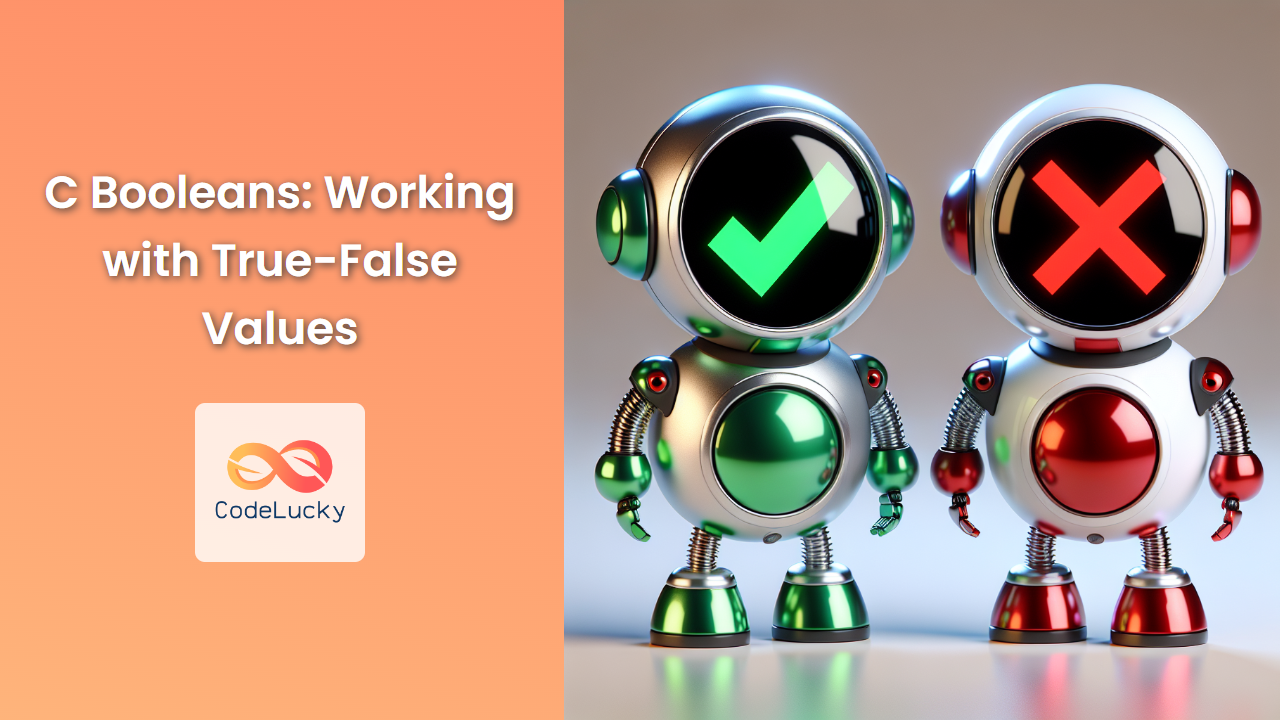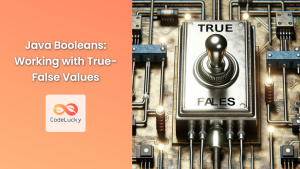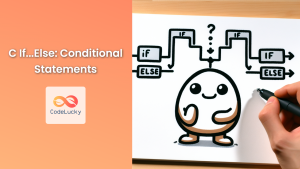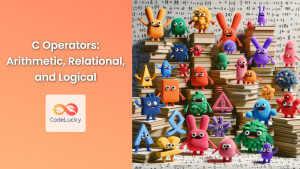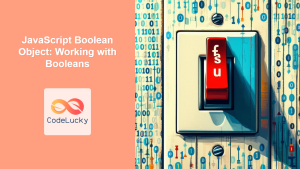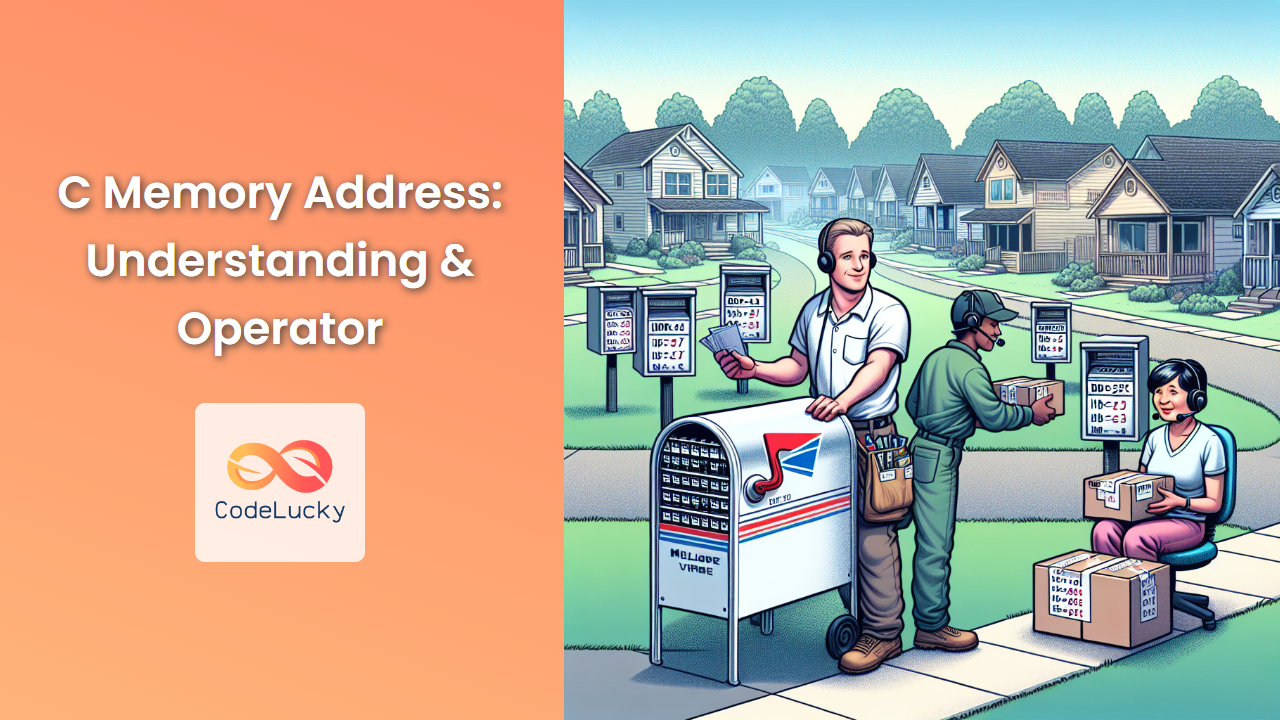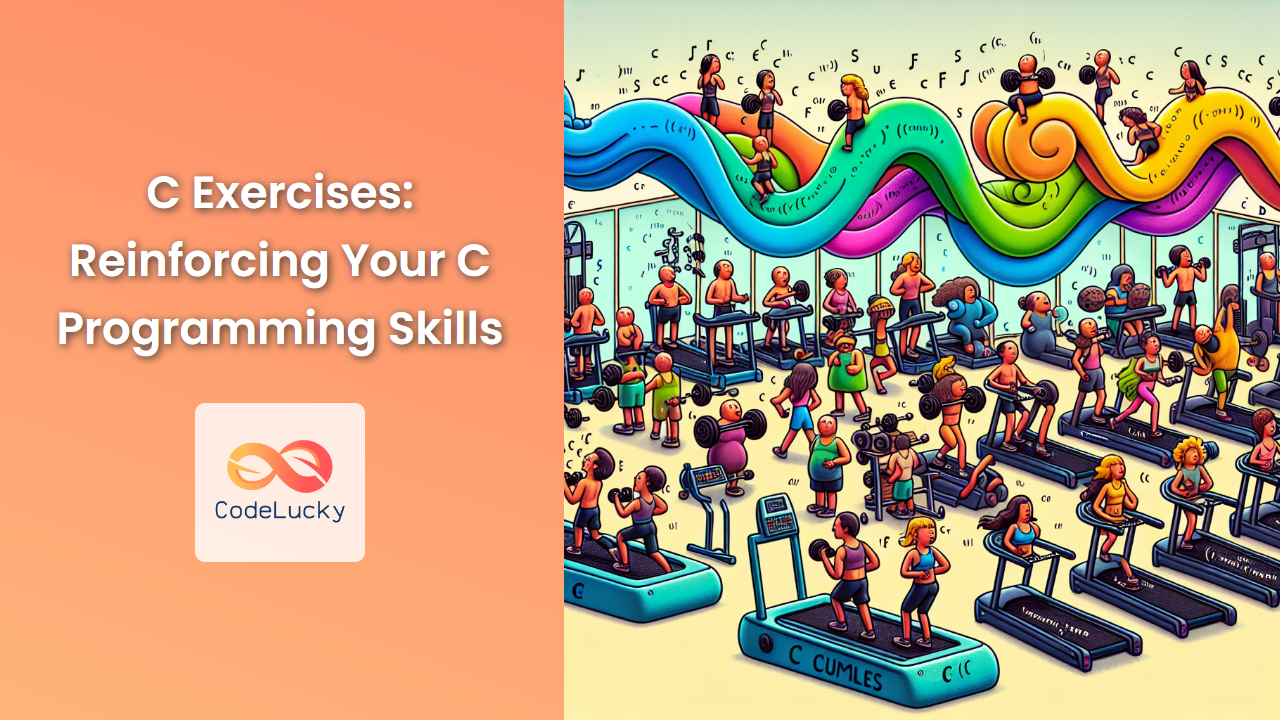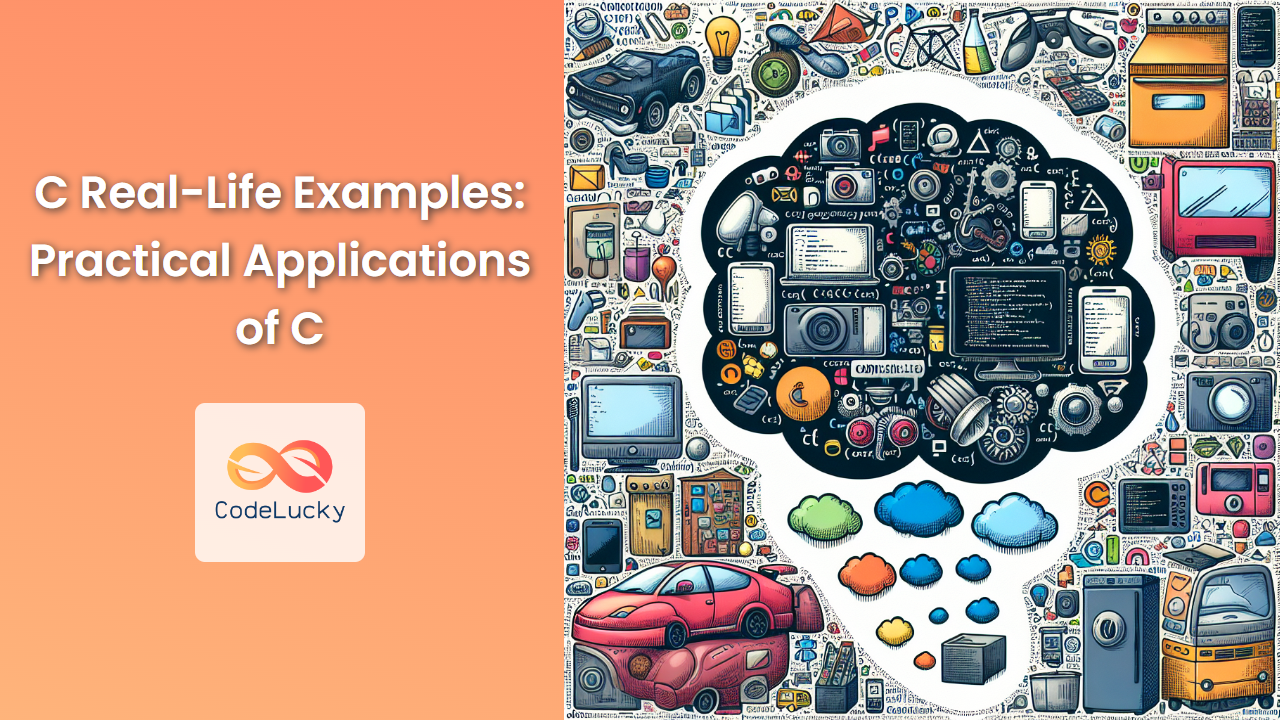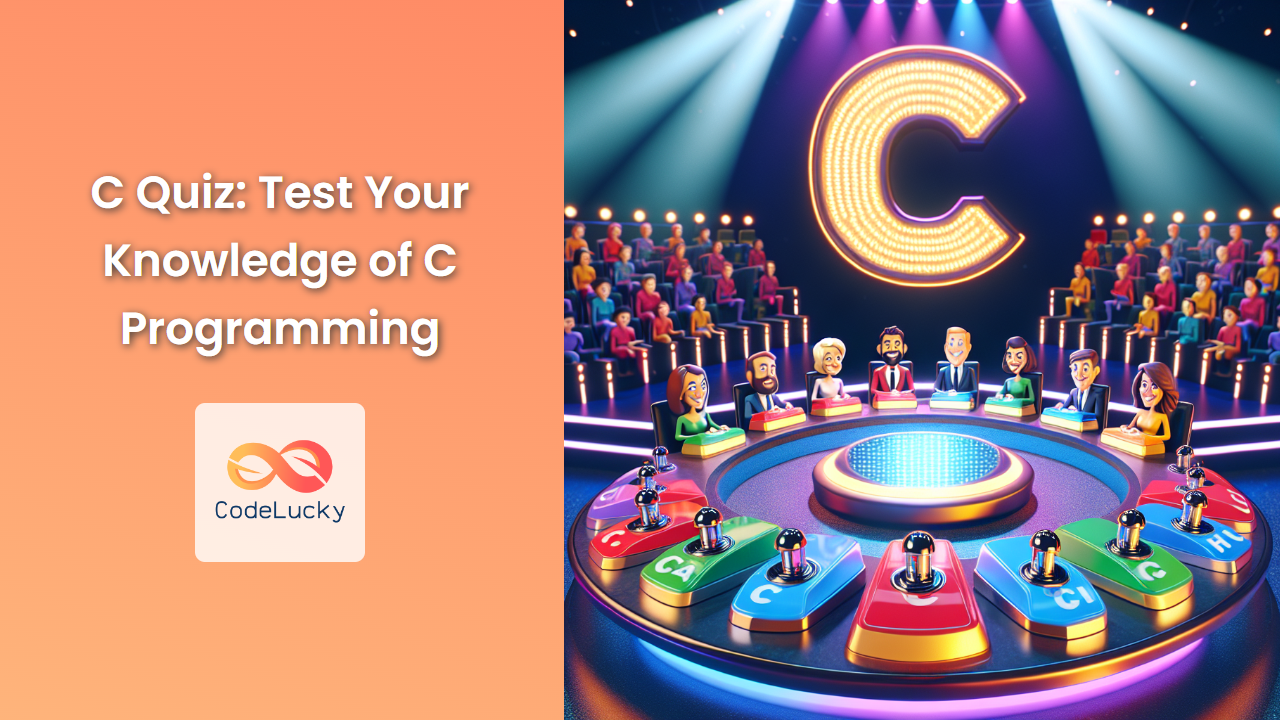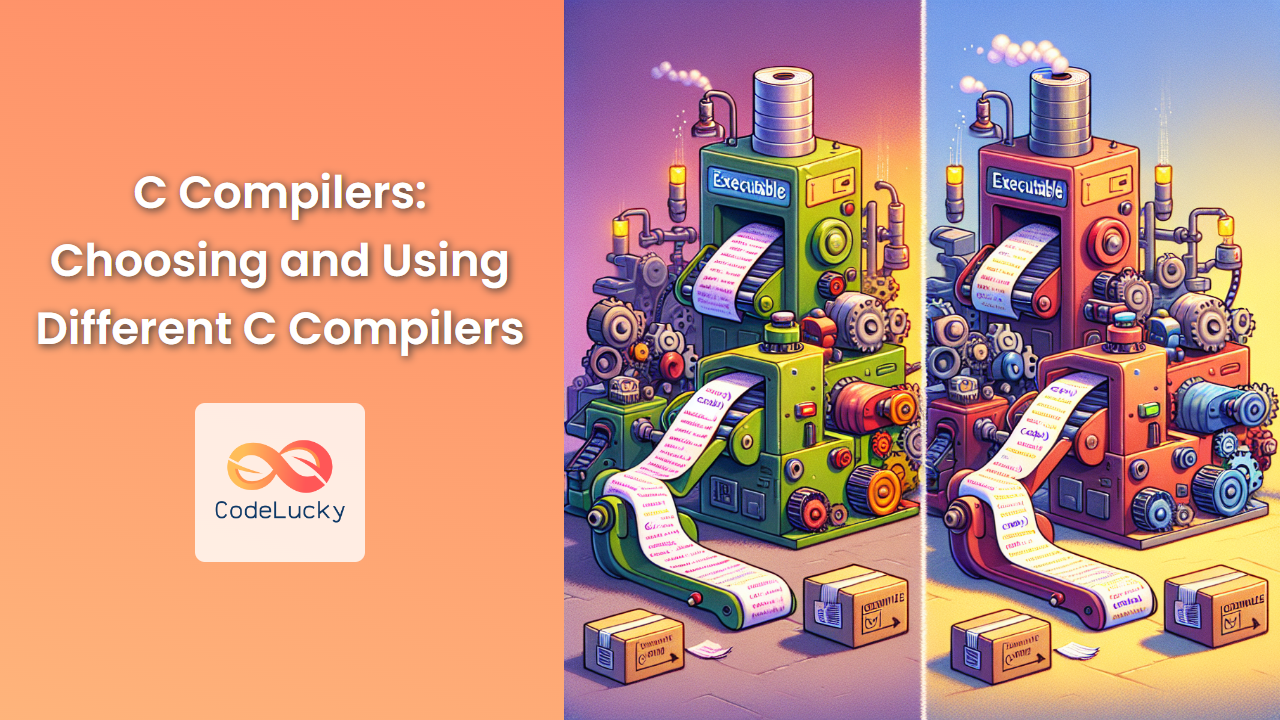In the world of programming, booleans are fundamental building blocks that represent true or false values. They play a crucial role in decision-making, conditional statements, and logical operations. In this comprehensive guide, we'll dive deep into C booleans, exploring their implementation, usage, and best practices.
Understanding Booleans in C
Unlike some modern programming languages, C doesn't have a built-in boolean type. However, it does provide ways to work with true/false values. In C, any non-zero value is considered true, while zero is considered false.
🔍 Fun Fact: The concept of boolean algebra was introduced by George Boole in the 19th century, long before the advent of modern computers!
Let's start with a simple example to illustrate this concept:
#include <stdio.h>
int main() {
int x = 5;
int y = 0;
if (x) {
printf("x is true\n");
}
if (!y) {
printf("y is false\n");
}
return 0;
}
In this example, x is considered true because it's non-zero, while y is considered false because it's zero. The output will be:
x is true
y is false
Introducing
While C doesn't have a native boolean type, C99 introduced the <stdbool.h> header, which provides a more intuitive way to work with boolean values. This header defines the bool type and the constants true and false.
Let's modify our previous example to use <stdbool.h>:
#include <stdio.h>
#include <stdbool.h>
int main() {
bool is_sunny = true;
bool is_raining = false;
printf("Is it sunny? %s\n", is_sunny ? "Yes" : "No");
printf("Is it raining? %s\n", is_raining ? "Yes" : "No");
return 0;
}
Output:
Is it sunny? Yes
Is it raining? No
In this example, we've used the bool type to declare our variables, making the code more readable and self-explanatory.
Boolean Operations
Boolean operations are essential for creating complex conditions and making decisions in your programs. Let's explore the three primary boolean operations: AND, OR, and NOT.
AND Operation (&&)
The AND operation returns true only if both operands are true. Here's an example:
#include <stdio.h>
#include <stdbool.h>
int main() {
bool has_ticket = true;
bool has_id = false;
if (has_ticket && has_id) {
printf("You can enter the venue.\n");
} else {
printf("Sorry, you need both a ticket and ID to enter.\n");
}
return 0;
}
Output:
Sorry, you need both a ticket and ID to enter.
OR Operation (||)
The OR operation returns true if at least one of the operands is true. Let's see an example:
#include <stdio.h>
#include <stdbool.h>
int main() {
bool is_weekend = true;
bool is_holiday = false;
if (is_weekend || is_holiday) {
printf("Time to relax!\n");
} else {
printf("Back to work!\n");
}
return 0;
}
Output:
Time to relax!
NOT Operation (!)
The NOT operation inverts the boolean value. Here's how it works:
#include <stdio.h>
#include <stdbool.h>
int main() {
bool is_logged_in = false;
if (!is_logged_in) {
printf("Please log in to continue.\n");
} else {
printf("Welcome back!\n");
}
return 0;
}
Output:
Please log in to continue.
Short-Circuit Evaluation
C uses short-circuit evaluation for boolean operations. This means that in an AND operation, if the first operand is false, the second operand isn't evaluated because the result will always be false. Similarly, in an OR operation, if the first operand is true, the second operand isn't evaluated because the result will always be true.
Let's see this in action:
#include <stdio.h>
#include <stdbool.h>
bool check_password() {
printf("Checking password...\n");
return false;
}
int main() {
bool is_username_correct = false;
if (is_username_correct && check_password()) {
printf("Login successful!\n");
} else {
printf("Login failed.\n");
}
return 0;
}
Output:
Login failed.
Notice that the check_password() function is never called because is_username_correct is false, and due to short-circuit evaluation, there's no need to evaluate the second part of the AND operation.
Bitwise Operations on Booleans
While not strictly boolean operations, bitwise operations are often used in C to manipulate individual bits, which can be thought of as boolean values (0 or 1). Let's explore some bitwise operations:
Bitwise AND (&)
#include <stdio.h>
int main() {
unsigned char a = 0b00001111; // 15 in decimal
unsigned char b = 0b00110011; // 51 in decimal
unsigned char result = a & b;
printf("a: %d (0b%08b)\n", a, a);
printf("b: %d (0b%08b)\n", b, b);
printf("result: %d (0b%08b)\n", result, result);
return 0;
}
Output:
a: 15 (0b00001111)
b: 51 (0b00110011)
result: 3 (0b00000011)
Bitwise OR (|)
#include <stdio.h>
int main() {
unsigned char a = 0b00001111; // 15 in decimal
unsigned char b = 0b00110011; // 51 in decimal
unsigned char result = a | b;
printf("a: %d (0b%08b)\n", a, a);
printf("b: %d (0b%08b)\n", b, b);
printf("result: %d (0b%08b)\n", result, result);
return 0;
}
Output:
a: 15 (0b00001111)
b: 51 (0b00110011)
result: 63 (0b00111111)
Bitwise XOR (^)
#include <stdio.h>
int main() {
unsigned char a = 0b00001111; // 15 in decimal
unsigned char b = 0b00110011; // 51 in decimal
unsigned char result = a ^ b;
printf("a: %d (0b%08b)\n", a, a);
printf("b: %d (0b%08b)\n", b, b);
printf("result: %d (0b%08b)\n", result, result);
return 0;
}
Output:
a: 15 (0b00001111)
b: 51 (0b00110011)
result: 60 (0b00111100)
Boolean Arrays
While C doesn't have a native boolean type, we can create arrays of boolean values using either integers or the bool type from <stdbool.h>. Let's explore both approaches:
Using Integers
#include <stdio.h>
#define SIZE 5
int main() {
int bool_array[SIZE] = {1, 0, 1, 1, 0};
printf("Boolean Array (using integers):\n");
for (int i = 0; i < SIZE; i++) {
printf("%d: %s\n", i, bool_array[i] ? "true" : "false");
}
return 0;
}
Output:
Boolean Array (using integers):
0: true
1: false
2: true
3: true
4: false
Using
#include <stdio.h>
#include <stdbool.h>
#define SIZE 5
int main() {
bool bool_array[SIZE] = {true, false, true, true, false};
printf("Boolean Array (using <stdbool.h>):\n");
for (int i = 0; i < SIZE; i++) {
printf("%d: %s\n", i, bool_array[i] ? "true" : "false");
}
return 0;
}
Output:
Boolean Array (using <stdbool.h>):
0: true
1: false
2: true
3: true
4: false
Boolean Functions
Functions that return boolean values are common in C programming. They're often used for validation, checking conditions, or making decisions. Let's look at some examples:
#include <stdio.h>
#include <stdbool.h>
bool is_even(int number) {
return number % 2 == 0;
}
bool is_prime(int number) {
if (number <= 1) return false;
for (int i = 2; i * i <= number; i++) {
if (number % i == 0) return false;
}
return true;
}
int main() {
int test_numbers[] = {1, 2, 3, 4, 5, 6, 7, 8, 9, 10};
int size = sizeof(test_numbers) / sizeof(test_numbers[0]);
printf("Number | Even? | Prime?\n");
printf("-------|-------|-------\n");
for (int i = 0; i < size; i++) {
int num = test_numbers[i];
printf("%6d | %5s | %5s\n", num,
is_even(num) ? "Yes" : "No",
is_prime(num) ? "Yes" : "No");
}
return 0;
}
Output:
Number | Even? | Prime?
-------|-------|-------
1 | No | No
2 | Yes | Yes
3 | No | Yes
4 | Yes | No
5 | No | Yes
6 | Yes | No
7 | No | Yes
8 | Yes | No
9 | No | No
10 | Yes | No
In this example, we've defined two boolean functions: is_even() and is_prime(). These functions return true or false based on the properties of the input number.
Common Pitfalls and Best Practices
When working with booleans in C, there are some common pitfalls to avoid and best practices to follow:
-
Avoid Redundant Comparisons: Instead of
if (is_valid == true), simply useif (is_valid). -
Use Short-Circuit Evaluation: Take advantage of short-circuit evaluation to optimize your code and avoid unnecessary computations.
-
Be Careful with Implicit Conversions: Remember that any non-zero value is considered true in C. This can lead to unexpected behavior if you're not careful.
-
Use Meaningful Names: When naming boolean variables or functions, use names that clearly indicate their purpose, often starting with "is", "has", or "can_".
-
Avoid Double Negatives: They can make your code harder to read. Instead of
if (!is_not_valid), useif (is_valid). -
Use Parentheses for Clarity: When combining multiple boolean operations, use parentheses to make the order of operations clear.
Let's see an example that demonstrates these practices:
#include <stdio.h>
#include <stdbool.h>
bool is_adult(int age) {
return age >= 18;
}
bool has_valid_id(bool has_passport, bool has_drivers_license) {
return has_passport || has_drivers_license;
}
bool can_enter_venue(int age, bool has_passport, bool has_drivers_license) {
return is_adult(age) && has_valid_id(has_passport, has_drivers_license);
}
int main() {
int age = 20;
bool has_passport = false;
bool has_drivers_license = true;
if (can_enter_venue(age, has_passport, has_drivers_license)) {
printf("Welcome to the venue!\n");
} else {
printf("Sorry, you can't enter the venue.\n");
}
return 0;
}
Output:
Welcome to the venue!
This example demonstrates clear naming conventions, the use of boolean functions, and the combination of multiple boolean operations in a readable manner.
Conclusion
Booleans are a fundamental concept in C programming, essential for decision-making and control flow. While C doesn't have a native boolean type, it provides powerful tools for working with true/false values, from simple integer representations to the more expressive bool type provided by <stdbool.h>.
By mastering boolean operations, understanding short-circuit evaluation, and following best practices, you can write more efficient, readable, and maintainable C code. Whether you're performing simple comparisons or complex logical operations, a solid grasp of booleans will serve you well in your C programming journey.
Remember, practice makes perfect! Experiment with different boolean scenarios, create your own boolean functions, and always strive to write clear, expressive code. Happy coding!

